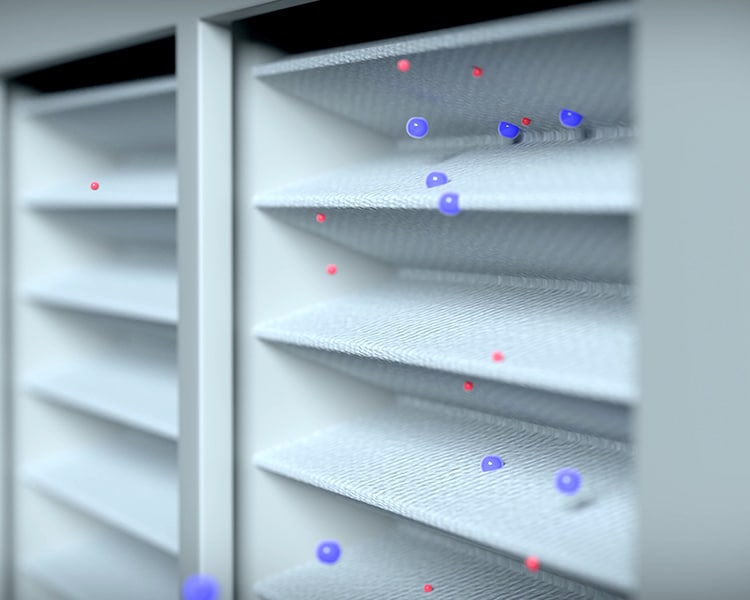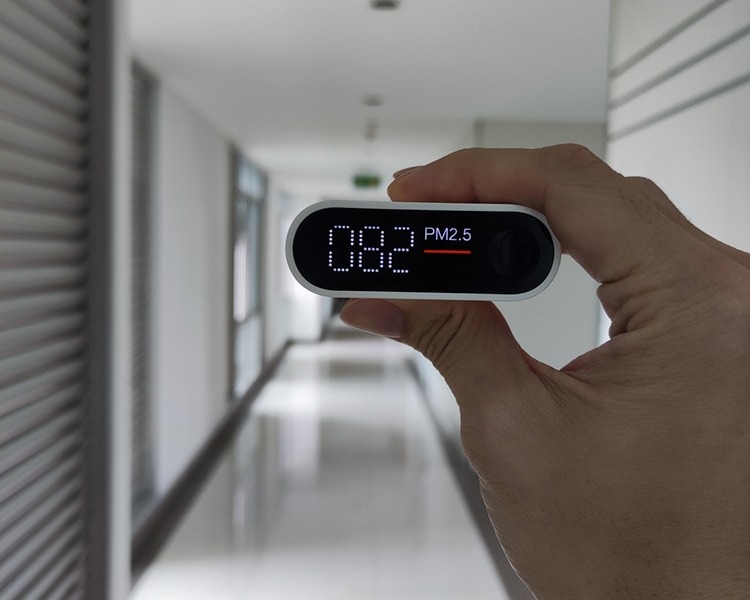
Phase contrast microscopy, or PCM, is a testing technique used to determine the concentration of fibers in air samples. Some people in homes suspected of having asbestos hazards order PCM testing to help determine if asbestos fibers might be present in the air. To test the air, the air is drawn through a filter to capture airborne fibers, and then part of the filter is viewed under a microscope. When fibers that meet certain criteria for asbestos are found, they are counted to help determine whether asbestos contamination is a possibility.
PCM testing may indicate high counts of fibers in an air sample. By providing an index of the total airborne fibers of a particular size range, it can let a homeowner or home buyer know of the possibility of there being asbestos fibers in the air. If the PCM testing indicates asbestos fibers are a possibility, then further testing can be done to determine whether asbestos is indeed present.

PCM testing cannot say, “Asbestos fibers are present.” But when the testing picks up certain levels of particles of a certain size, it can let homeowners know that further tests are warranted. Likewise, PCM testing cannot definitively say that asbestos is not present, but depending on the size and concentration of fibers present in the sample, it can indicate that asbestos contamination is less likely.
If PCM testing indicates the possibility of asbestos contamination, then transmission electron microscopy, or TEM is used to make a more definitive determination. TEM is the standard for investigation of airborne asbestos and is used both before and after asbestos abatement and for monitoring in industrial settings. TEM can differentiate between asbestos fibers and other fibers, and can even classify different types of asbestos fibers. TEM testing takes longer and is more expensive than PCM testing, so it is used more as a second line of diagnosis when it is deemed necessary.
The two main advantages of PCM testing are quick turnaround time and low cost. Certified asbestos inspectors adhere to strict quality assurance and quality control guidelines so that homeowners can be confident in the test results. The main disadvantage of this type of testing is that it doesn’t positively identify fibers as asbestos. Differentiating asbestos fibers from other fibers that may be found in air samples requires further testing.
Another disadvantage is that PCM can detect fibers as small as around 0.2 micrometers in diameter, when asbestos fibers may be much smaller, so there could be more asbestos fibers present than a preliminary PCM test would indicate. However, home inspectors who are licensed to perform PCM tests have the expertise necessary to recognize other indications in the home that could point to asbestos hazards and recommend a testing approach that meets the homeowner’s or home buyer’s needs. At MD Mold Testing, our inspectors are certified in asbestos testing, so you can be confident that your northern Virginia, Maryland, Delaware, or District of Columbia home is inspected and tested to the highest standards.